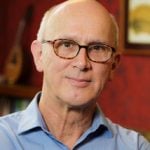
I have been working my way through a new book about (and partly by) Msgr. Ronald Knox (1888-1957), one of my three favorite apologists, the others being Frank Sheed and Arnold Lunn. The book is Ronald Knox: A Man for All Seasons. It includes five essays about Knox’s life, nine regarding his works, and many little known or previously unpublished pieces by Knox himself, such as letters and some of his earliest and hardest-to-track-down writings.
Among the book’s fourteen contributors are Clare Asquith (the Countess of Oxford and Asquith), who knew Knox when she was a child in the 1950s; Sheridan Gilley, retired from Durham University, writing about Knox’s fiction, particularly his detective stories (I had the pleasure of staying at Gilley’s home a few years ago); Milton T. Walsh, a Catholic priest who wrote the fine Ronald Knox as Apologist, and David Rooney, author of The Wine of Certitude: A Literary Biography of Ronald Knox.
“Enthusiastic” religion
Rooney’s contribution chiefly is about Knox’s Enthusiasm, but what especially intrigues me about Rooney’s piece are the several pages devoted to a consideration of the Catholic charismatic movement as an example of “enthusiastic” religion. At one point he wonders what Knox would have made of it. Knox died early, at sixty-nine. What if he had lived into the mid-1970s, as did others born the year of his birth, apologist (and famous skier) Lunn and philosopher Fr. Martin D’Arcy? Would Knox have had to reconsider his conclusion that religious enthusiasm, at least among Catholics, was dying out? Rooney says:
By the 1970s, the whole picture was different. He would have observed in particular the growing numbers of Catholics attracted to the Charismatic Renewal Movement. He would have read of the 30,000 attendees at an annual conference devoted to Pentecostal activities held in the most prestigious Catholic university in the Unites States [Notre Dame]. Even had he lived that long, he surely could not have predicted that by the twenty-first century there would be about 100 million Catholics worldwide who consider themselves in some way part of the Charismatic Movement.
It would have reminded Knox of the evangelical revival of the Wesley brothers.
Rooney devotes part of his discussion to John Wesley, the founder of Methodism. Over the centuries the enthusiastic movements waxed and waned. In ancient times they achieved notoriety in the Montanists and Donatists. Then the tendency faded away, to reappear in the Middle Ages in the Albigensians and, later, the Anabaptists. With the Reformation and its aftermath, enthusiasm—the distrust of religious truth unless confirmed by the emotions—bubbled to the surface with the Quakers and Methodists among Protestants and with Jansenists and Quietists among Catholics.
John Wesley was born in 1703, three years before Samuel Johnson. They had quite different mindsets, said Knox in another of his works, A Retreat for Lay People. Wesley was a man of feelings, but Johnson “was content, as most of us have to be content, with beliefs accepted on hearsay, proposed to him by the Church to which he belonged, and accepted with a firm direction of the will and intellect.” No emotional response is needed for affirmation of the truths of the faith. “The true business of faith,” added Knox, “is not to produce emotional conviction in us, but to teach us to do without it.”
Catholic charismaticism
The Catholic variant of charismaticism dates from 1967. It began at Duquesne University, spread to Notre Dame, and then went viral, as the current saying has it. A Belgian cardinal, Leo Suenens, was an early patron. Pope Paul VI, while a charismatic event was in progress in Rome, said some positive things about the movement’s emphasis on “communion of souls” and its promotion of prayer. Later, John Paul II encouraged Catholic charismatics to defend the Christian notion of social life against inroads by secularism.
The popes never went much further than that. They never endorsed the notion of a “Baptism in the Spirit,” nor did they speak in favor of glossolalia, or speaking in tongues. The latter was a phenomenon virtually unknown and unwritten about for a millennium and a half, until Scottish Presbyterian minister Edward Irving, in 1830, provoked its appearance through his enthusiastic preaching. After that, speaking in tongues died down until the turn of the twentieth century with the rise of the modern Pentecostal movement. There were no Catholic examples of it until two-thirds of a century later.
I recall when Franciscan University of Steubenville seemed to be the epicenter of Catholic charismaticism—that university plus the Ann Arbor environs, I guess I should say. For about twelve years running, I spoke at that school’s summer Defending the Faith Program, beginning around 1991.
The charismatic way never appealed to me; in fact, I found it somewhat off-putting. I appreciated the sincerity and friendliness of adherents but never reconciled myself to the movement’s seeming disinterest in intellectual rigor. Things may have changed in recent years (the movement has been off my radar for quite a while), but I can’t think of a single substantive book coming out of it.
Where the movement stands today
The Catholic charismatic movement seemed to enjoy its high period in the 1980s. Already in the 1990s, when I began to be in regular contact with people in it, and it seemed to be going into eclipse. Its chief publications were going under, and some prominent charismatic groups, such as the Word of God community in Ann Arbor, produced cult-like problems. The movement seems now to be only a shadow of what it once was.
I appreciate that many Catholics still consider themselves to be charismatics and find sustenance in the movement. Nevertheless, I think the movement was a wrong turn. Enthusiastic movements almost always are. To my mind, the rapid rise and almost-as-rapid decline of Catholic charismaticism suggest a disequilibrium within the movement. Excitement can be maintained only so long. At some point it ceases to satisfy.



